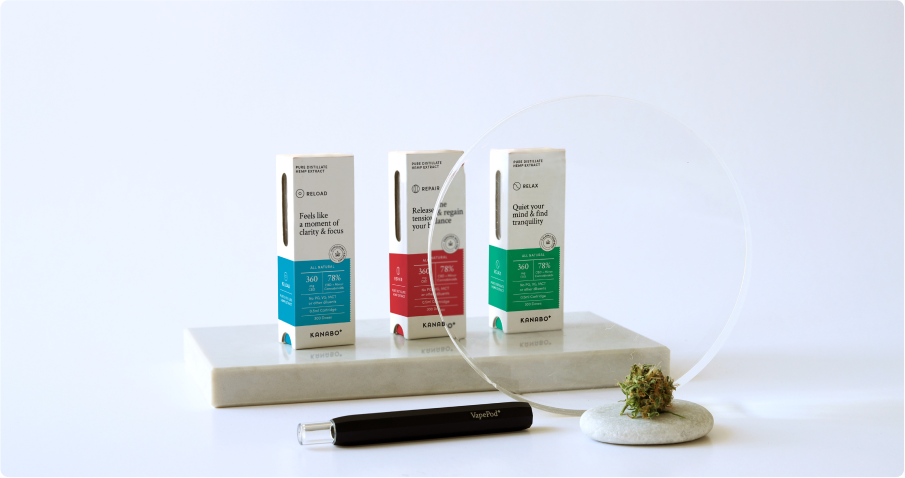Pain Treatments
Contents
- - Overview
- - Cannabis Treatment
- - CBD Benefits
- - THC Benefits
- - Other Components
Book an Online Consultation
Consult with a specialist for your to relieve your physical pain
Overview
Medical cannabis has been used for medicinal purposes for centuries, but its use has been controversial due to its psychoactive effects and lack of understanding due to years of political prohibition. However, there is a growing body of evidence indicating that medical cannabis can be a safe and effective treatment for a variety of medical conditions.
Medical cannabis has been shown to be effective in treating various conditions, including chronic pain, epilepsy, multiple sclerosis, and Crohn's disease. It has also been shown to reduce chemotherapy-induced nausea and vomiting, and may have potential as a treatment for other conditions such as Parkinson's disease, post-traumatic stress disorder (PTSD), and addiction. Chronic pain, defined as pain that persists for more than three months, can be caused by a wide range of conditions including arthritis, diabetes, and back pain. Medical cannabis has also been shown to be effective in reducing neuropathic pain, a type of pain caused by nerve damage, and cancer-related pain, a common side effect of cancer and various cancer treatments.
Pain Relieving Components of Cannabis
Cannabidiol Pain Relieving Effects
One of the active ingredients in cannabis, cannabidiol (CBD), is believed to have analgesic and anti-inflammatory effects, which may be responsible for its pain-relieving effects. CBD is not psychoactive, meaning it does not produce the "high" associated with the use of cannabis. As a result, medical cannabis products containing CBD are more widely available and are typically prescribed for a wider range of conditions.
CBD extract oil, taken orally, is absorbed through the digestive system. These products typically have a slower onset, but the effects can last for several hours. CBD extract oil can also be specially engineered for vaporisation, allowing the active ingredients to be absorbed through the lungs and into the bloodstream. This method of administration has a faster onset, helping patients get immediate relief.

Tetrahydrocannabinol Pain Relieving Effects
Another active ingredient in cannabis, tetrahydrocannabinol (THC), is also believed to have pain-relieving effects, but it is also psychoactive and has a higher potential for side effects. As a result, medical cannabis products containing THC are typically only available to patients with specific conditions and are subject to strict regulations.
THC-containing products are available in a variety of forms, including extract oils, sprays, and dry cannabis flowers. These products are usually taken orally, but they can also be inhaled using a vaporiser. THC-containing products may be prescribed for conditions such as multiple sclerosis and chemotherapy-induced nausea and vomiting.

Benefits of Other Active Components
In addition to CBD and THC, cannabis contains a wide range of other minor cannabinoids and terpenes that may also have therapeutic effects. These compounds may work together to produce what is known as the "entourage effect," which refers to the synergistic interactions between the various compounds in cannabis.
The growing body of evidence suggests that medical cannabis can be a safe and effective treatment option for many patients. If you are interested in seeking out alternative treatment options for your condition, book an appointment with one of our specialists.
* It is important to note that medical cannabis is regulated and used for medicinal purposes under the supervision of a healthcare provider, while black market cannabis is obtained through illegal means and is not subject to the same quality standards. It is important for patients to understand the differences between the two and to only use medical cannabis under the supervision of a licenced healthcare provider.
Common questions about Cannabis Treatment
Yes, by prescription. In the United Kingdom, medical cannabis is legal, but it is still a controlled substance and is only available on prescription. In order to prescribe medical cannabis, a doctor must be registered with the General Medical Council (GMC) and must follow the guidelines set out by the National Institute for Health and Care Excellence (NICE).
It is important to note that while the vast majority of people who use cannabis do not develop an addiction to it, some people may experience a dependence on cannabis, particularly if they use it heavily and over a long period of time.
According to some studies, the risk of developing a cannabis use disorder or addiction is generally lower than 10%. While the vast majority of people who use cannabis do not develop an addiction to it, some people may experience a dependence on cannabis, particularly if they use it heavily over a long period of time.
Cannabis use disorder is characterised by the inability to stop using cannabis despite experiencing negative consequences as a result of its use. Cannabis use disorder can range from mild to severe, and it may develop into addiction in some cases.
However, it is important to note that the risk of developing a cannabis use disorder or addiction is generally lower than the risk associated with the use of other substances, such as alcohol or opioids.
Additionally, the potential negative consequences of cannabis use disorder or addiction can be managed and treated successfully with appropriate medical care.
It is important for medical cannabis patients to be aware of the potential for cannabis use disorder or addiction and to use cannabis responsibly as part of their treatment plan. If you have concerns about your cannabis use, it is important to speak with a healthcare professional for guidance and support.
Possible side effects can include:
■ Dry mouth
■ Dizziness
■ Dry eyes
■ Impaired judgement
■ Paranoia or anxiety
■ Increased heart rate
It’s important to note that these side effects are generally mild and temporary, and most people do not experience significant problems when using medical cannabis. If you have been prescribed medical cannabis and are experiencing significant side effects, be sure to discuss this with your Treat-It specialist doctor. They can help you determine the best course of treatment for your specific needs.



